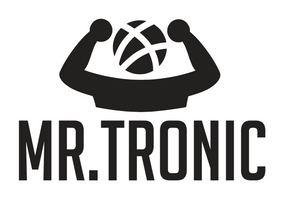Understanding RJ45 Connectors: Essential Insights for SMB Network Setup
A central facet of setting up a network for small and medium businesses (SMBs) is the implementation of the right connectors. Having the right equipment can mean the difference between a seamless connection and frequent network outages. For many SMB owners, understanding this equipment, especially the commonly used RJ45 connectors, can pose a significant challenge. This article aims to explore the world of RJ45 connectors; drawing insights from industry experts, it will illuminate the key factors that SMB owners should consider when setting up their networks.
The RJ45 connector, a term often used interchangeably with Ethernet, is a standard type of physical connector for network cables in the universe of telecommunications and data comms. RJ45 connectors are used for connecting Ethernet devices to a local area network. They have been in the market for a considerable number of years, and over time, have evolved to produce superior transmission performance.
Navigating the RJ45 connectors market to choose the most fitting option for a small business network setup can be overwhelming. There are various types of RJ45 connectors, each with specifications best suited for a specific use. Two of the most popular choices on the market today are the Mr. Tronic Cat6 RJ45 and the Mr. Tronic Cat5e RJ45 connectors.
Both the Cat5e and Cat6 connectors of Mr. Tronic are designed to cater to small and medium-sized businesses, offering easy-to-crimp modular plugs perfect for internet cables. Incorporated in these connectors are 8P8C RJ45 plug Ethernet connectors, giving you a high-quality, stable network connection.
The Mr. Tronic Cat6 RJ45 Connector is a 100-pack connector kit, encapsulated in an easy-to-crimp modular plug, ideal for internet cables. As a Cat6 STP (Shielded Twisted Pair) connector, it ensures superior protection against electromagnetic interference, an important factor when setting up a stable network in densely packed office environments. According to many industry experts, this makes the Mr. Tronic Cat6 RJ45 connector a suitable choice for SMBs that require high-speed network communication with minimal interference.
On the other hand, the Mr. Tronic Cat5e RJ45 Connector is also a 100-pack connector kit, enhanced with the same easy-to-crimp features as the Cat6 counterpart. It is a Cat5e UTP (Unshielded Twisted Pair) connector, making it an optimal choice for small and medium businesses that require network connections with less dense traffic. According to experts, Cat5e connectors offer sufficient performance for SMBs at a lower cost than their Cat6 equivalent.
However, choosing between these two RJ45 connector variants depends heavily on the specific network needs of an SMB. Network requirements, such as speed, data volume, interference protection, and cost-effectiveness, should be carefully assessed before making a decision.
Setting up a network involves more than just basing decisions on connector categories. Other fundamental aspects to consider include cable length, installation process, network management, maintenance costs, and potential upgrades. Therefore, according to industry experts, SMB owners should also consider factors such as the growth trajectory of their business, the amount of data traffic they anticipate in the future, and their business's tolerance for network disruption when deciding on the appropriate network connector.
In conclusion, understanding the intricacies of RJ45 connectors is essential for SMB owners looking to set up a robust and reliable network for their business. By weighing the merits of different connectors, such as the Mr Tronic Cat6 and Cat5e, and considering their specific business needs, SMB owners can make informed decisions that will ultimately ensure their entities are on the frontline of today's fast-paced digital business landscape.
